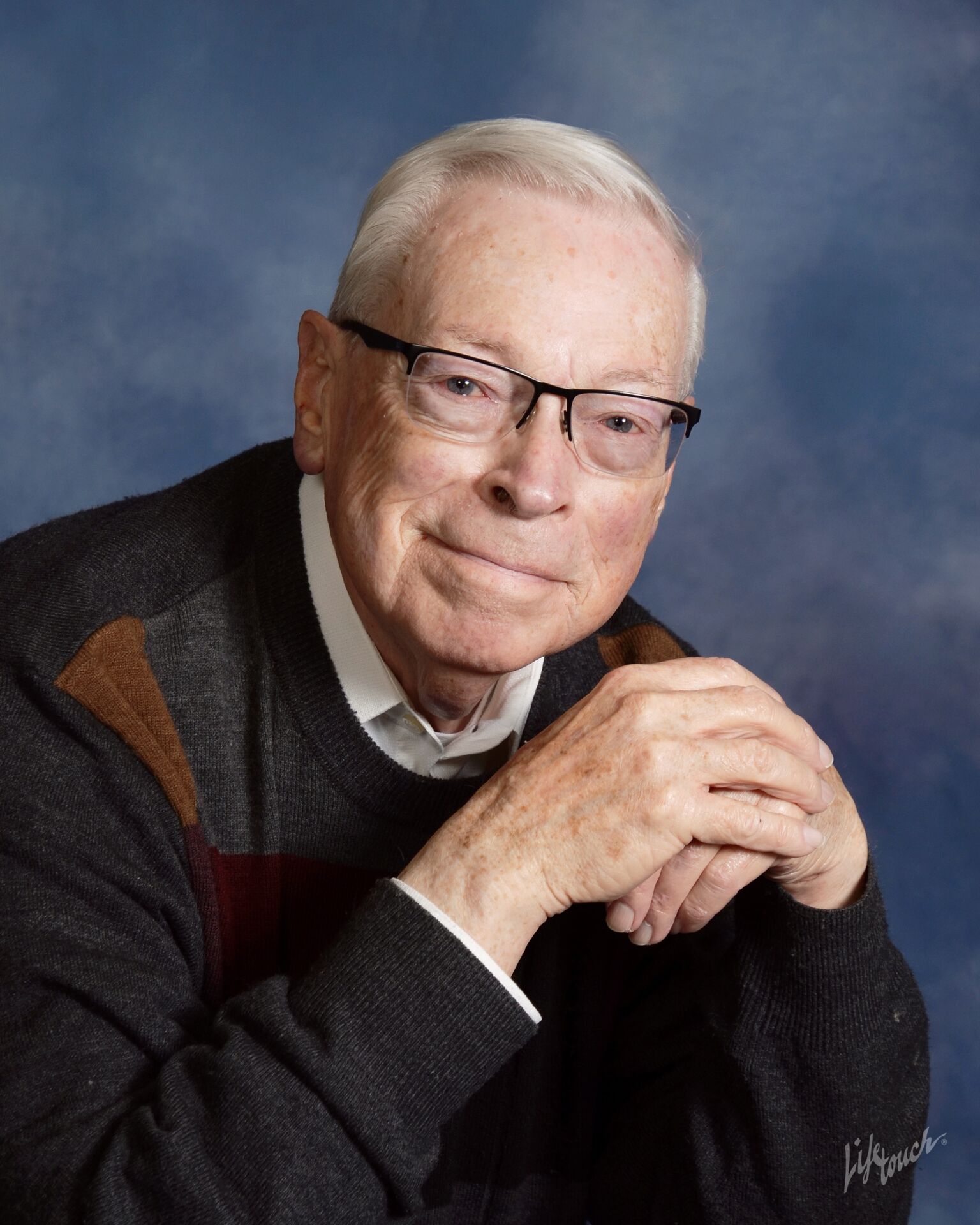Making Better Choices
Detachment – Part 2

By Dr. Robert Leichtman
Script: Colossians 3: 9-11 Putting on the New Self
…Do not lie to one another, since you have taken off the old self with its practices, and have put on the new self, which is being renewed in knowledge and in the image of its Creator. Here there is no Greek or Jew, circumcised or uncircumcised, barbarian, Scythian, slave, or free, but the Divine is all and is in all.…
Summary:
The art of detachment is vital to the problems that can occur when we focus our attention too narrowly. When we automatically identify with various states of illness and the most wounded or dysfunctional parts of our life, we are diverting our life force to support areas of discomfort and sickness. Detachment from these feelings and beliefs can allow us to back off and recognize other perspectives and healing possibilities.
The tendency to focus our attention too narrowly is often found in those who habitually are overly concerned about:
- appearances and being friendly
- the comments and style of famous celebrities
- the scandalous news about others and opportunities to share this information
- personal grievances and condemning those who have offended them
- being bored or annoyed about the changeless routine of events that fill up their usual day
While it is important to be practical and sensible, too much attention to what irritates, discourages, or bores us can keep us earthbound and lost in monotony of our ordinary experiences. This habitual focus of interest and attention will cause us to neglect our other possibilities, especially our higher human and spiritual potentials.
When our awareness and attention is closed to all but the commonplace and annoying aspects of life, certain problems are more likely to occur, especially when:
- we have difficulty with recurring pain other physical distress
- there are frequent bouts of depression, anxiety, uncertainty, frustration, anger, and apathy
- we often feel lost or overwhelmed and don’t know what to do
- self-doubt is eating away our confidence as well as the ability to enjoy what success and good relationships we have
- and we feel a mysterious emptiness in the lack of meaningful activities or significant purpose in living
Most often, the enduring solutions to these needs must be found within our self at an inner level of our humanity and spirit. By reaching into our deep core it is possible to tap into levels of strength, awareness, and wisdom that are not readily available in ordinary states of consciousness.
Unfortunately, many people tend to search help in strange and exotic places that can momentarily intrigue and entice but eventually seem shallow after the strangeness wears off. What people need is eventually found in their higher human and spiritual potentials. This is a core of wisdom, love, joy, hope, and strength—often unrecognized by many—that can provide perspective, insight, and context to our ordinary experiences. This new understanding can be exceptionally helpful in managing our distress, disappointments, and defeats.
This process for finding the knowledge, perspective, and qualities begins as we are able to become detached from our usual reactions, beliefs, and explanations about how we feel and what has happened to us. This state of detachment allows us to look for better answers and solutions, such as:
- what really went wrong in the past and do we have some responsibility for it
- what did we miss about the meaning of those events and why
- what are better ways to think, feel, and respond to these issues
- what can we do to make our life more effective and rewarding
- how can we improve our communications with key people
- what can I do to make these relationships more harmonious?
As we begin to review our experiences in this manner, we are enabling an important talent. This is the ability to use detachment to reflect on how we view our experiences. In a more objective state of mind, we can observe how we tend to recycle:
- the same old routine attitudes and expectations about recurring annoyances
- the same old excuses, rationalizations, and complaints about them
- and then wonder why we stick to these habits and attitudes that keep reproducing the same problems and distress?
As we move away from reliving the old attitudes and beliefs, we free up mental space to become curious about better answers and solutions for these situations and how they might:
- produce better results
- bring more efficiency and productivity into our life
- create more harmony and joy in our relationships
- and more health and comfort to our body.
Eventually we discover the major key to opening our self to our higher human and spiritual resources. This is the discovery that there is a major difference between our ability to be aware of who we are versus what we see, feel, touch, or remember. This is not a trivial distinction! When we discover that our feelings and memories are only emotional and mental sensations that we can examine and study, just like objects we physically touch or see, we are taking a giant step toward self-mastery. Being able to identify with our ability to be aware and observe what happens to us enables us to detach from a variety of emotions, thoughts, memories. This allows us to be more objective in our effort to study and modify them.
For example, we can experience a strong sense of hunger but choose to restrain our self, not give into the craving, and just keep on working. We constantly have the same type of choices about the myriads of attitudes, thoughts, and expectations that swirl about us—if we are willing to turn off our mental automatic pilot and become conscious of what we are thinking, feeling, and expecting or fearing.
Our ability to be more consciously awake and aware as an observer of what happens to us is what can prevent us from being immersed in painful memories and feelings. We are not attempting to forget these events, but rather, to hold them apart from us so we can thoughtfully study them, seek what went right or wrong, and what we can do to manage such issues more effectively.
Instead of being immersed in assorted fears:
- we can contemplate just how much of a threat we are facing
- whether or not we are overreacting
- and what we need to do to fix this issue
Instead of being immersed in continuing great frustration, we can detach and mentally look for:
- how we have been getting in the way of our relief by being stubborn and stuck in unnecessary victim status
- or stuck in the limitations of old difficult situations which have long left us
- how we failed to use our common sense and self-control to take charge of our petty fears and resentments
- and how we wasted so much time in sulking and self-pity instead of fully embracing every good opportunity to climb out of our pit of darkness

These natural evolutions of thought and self-discovery show us the value of being able to become detached—not disconnected—from what has happened to us as well as the fear, anger, sadness, and guilt that we attach to important events. It is our anxiety, doubt, despair, and resentment that so easily blinds us to better ways to view and respond to the obstacles to our health, success, and joy in living.
Once we practice this type of mental detachment, we are more likely to see how we can find ways to:
- change our attitudes, modify our beliefs
- rearrange our priorities
- enrich our concept of who we are
- and elevate our expectations about what we can do and who we can become
Our ability to be detached prepares us to enter a state of awareness and belief that liberates us from constant recurring gloom, fear, anger, and other emotional traps. In this detached state, we can rise above old limiting assumptions such as:
- we are not sufficiently talented or strong enough ever to be successful
- and we will always be a victim who suffers
Genuine detachment can free us from the grip of this nonsense, and as a consequence, open us to our higher human and spiritual strengths. This change will provide the power to reduce the tendency to allow pain, suffering, fear, despair, anger, or guilt to dominate our attention and expectations.
Ultimately, detachment is our capacity to separate our physical sensations, feelings, memories from our ability to be aware of them as something we created and, therefore, can change. Many are not aware that our feelings and our awareness of them are two different capacities. When we are able to separate them, this provides the mental space to understand we are always more than physical sensations of any kind: good, bad, sick, healthy, fatigue, pain, etc. When we identify with the ability to be aware of these sensations we then have the capacity to adjust how much attention and significance we give to them.
While this may seem to be a simplistic intellectual distinction, this is the mental state and perspective that leads to the powerful revelation that:
- there may be things that annoy us, but we don’t have to obsess on them
- there can be pain, but it doesn’t have to hurt so much
- there can be major disappointment, regret, or fear, but we can be detached partly from it while we work out what to do to overcome it or compensate for it
- or there can be significant anger about abuse and neglect, but by identifying with our ability to be aware of emotions rather than identifying with the feeling of anger, we move to a mental state where we can manage the anger without being lost in it.
Eventually, effective detachment places us in a state of consciousness where we can understand that we don’t have to be buried in our emotions and unpleasant memories of suffering. Instead of being obsessed with our distress, detachment enables us to move back and view the larger picture of who we are as a conscious observer, director, and participant in life. This is the frame of mind where we can recognize that:
- We are never just our thoughts, because we are the creator and the director of our thinking and interpretations. We can use all of our abilities to create a more efficient perspective and path to being healed, helpful, and fulfilled
- We are never just a pile of emotions with a heavy coating of disappointment, worry, and resentment. Instead we are, in truth, the creator of our emotional response to events and people. We can gather and apply constructive attitudes to replace our negative ones.
- We are never just our sick bodies or physical aches. We can identify with our ability to be aware of the resources of our higher self rather than being immersed in the feelings and sensations of sickness. This detachment makes it possible to adjust how much attention and significance we give these sensations. Again, we are always more than our physical sensations, for we are the observer, director, controller of them. We can use this control to impose a better rhythm and quality of energy on to our body to support comfort, healing, and strength for it.
Detachment enables us to identify with our inner observer and intelligence. This enables us to:
- recognize how we are not nearly as limited by physical or psychological distress as we have assumed
- and use this insight to rise above real sensations and explore our power to direct better ideas and attitudes and their energies into where healing, reassurance, and relief are needed.
More specifically, detachment can lead to freeing up our ability to:
- add gentleness to where we are irritated
- add kindness to where we are hurt
- add confidence to where we feel fear and doubt
- add cheerfulness to where we are discouraged
- add faith to where to have lost hope.
Detachment is a powerful aid to help us to:
- review and sort out the meaning of what has happened to us
- find better answers and solutions to our problems
- find a way to by-pass recurring sadness, fear, anger, and guilt that gets in the way of working with our higher possibilities.
- find a way to adjust our priorities so we can concentrate more attention on the things that are helpful, constructive and enriching to us
- and identify more fully with our emerging higher human and spiritual resources and potentials.
Thus, the value of effective detachment—once it is understand and practiced—is to keep us mindful that there is a center of power, wisdom, and love in us that is always greater than:
- any sickness we might have
- any fear, doubt, or resentment we might have
- any problems or frustration we might experience.
This core of strength, knowledge, love, and joy can become a powerful resource to help us cope with all of our challenges by soothing the hurt, repairing our wounds, and restoring our dignity.
Detachment, as I have defined us, is also a powerful tool for:
- self-examination and healing
- liberating us from many earthbound connections
- and opening our self to our spiritual possibilities.
Let us review the words of Paul as quoted in his scripture given at the beginning.
“Take off the old self with its practices”
Translation: Clear away your old negative attitudes about yourself and all the dysfunctional beliefs and habits that go with them.
Paul continues:
“…and put on the new self, which is being renewed in knowledge and in the image of its Creator.”
Translation: Draw on the universal life and divine design to guide and empower this healing.
Think on these things

Course Overview
Course Overview Overview of Active Meditation Discourses & Course Objectives By Dr. Robert Leichtman These discourses are on the theme of making the right choices

Part 1: Focus on What’s Important
Focus on What’s Important Detachment – Part 1 By Dr. Robert Leichtman Summary Our ability to gather and focus our attention can concentrate our hope,

Part 3: Working with Our Strengths
Working with Our Strengths Detachment – Part 3 By Dr. Robert Leichtman Scripture: Psalm 8 LORD, our Lord, how majestic is your name in all
